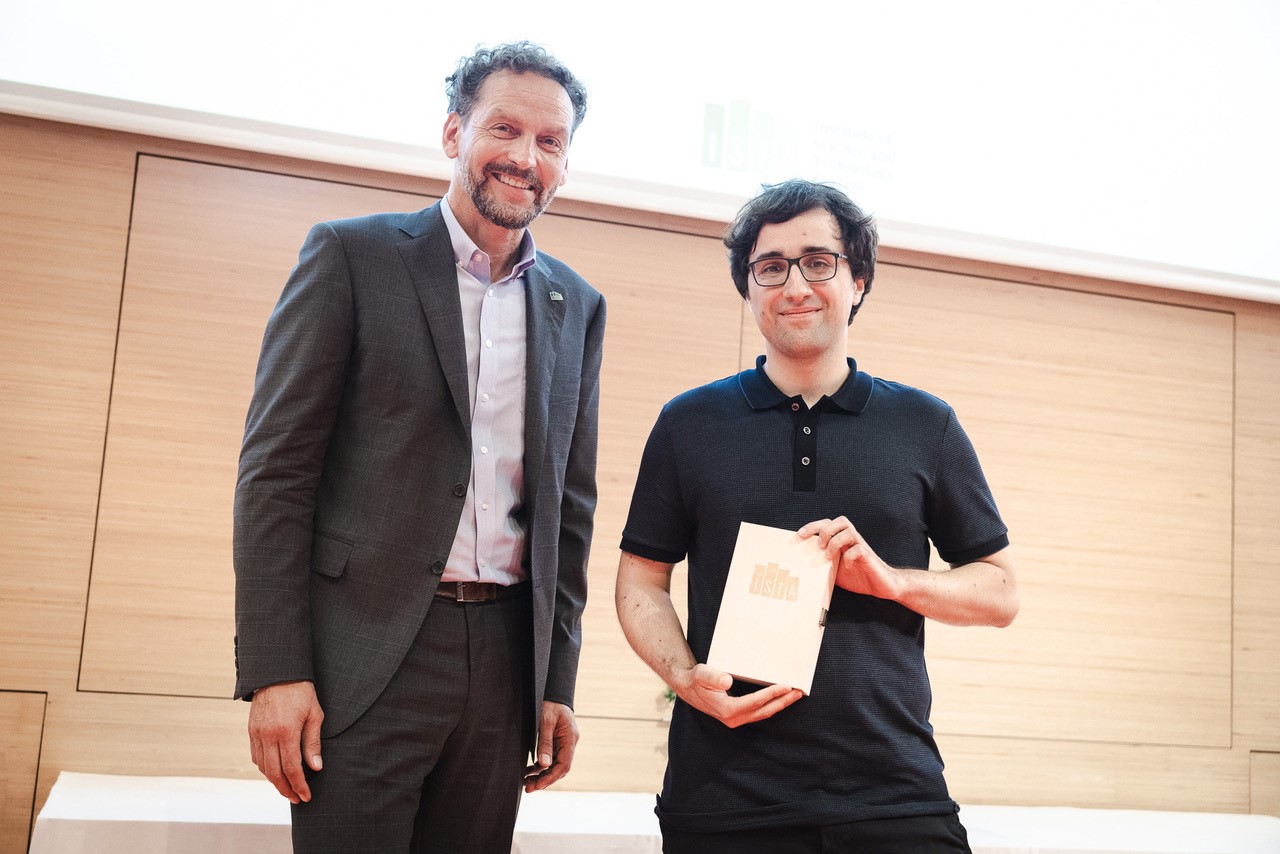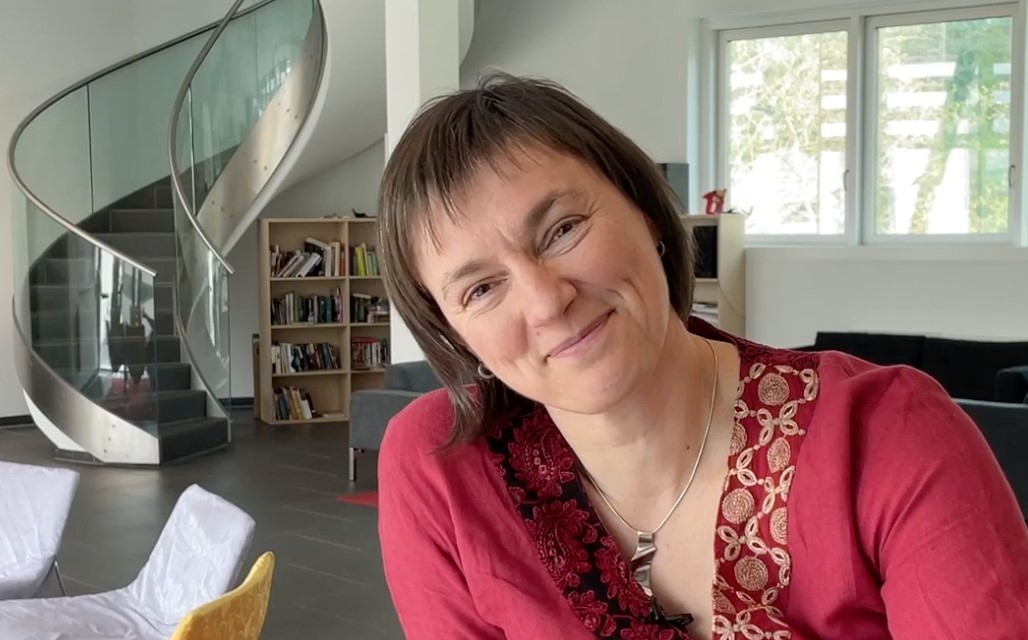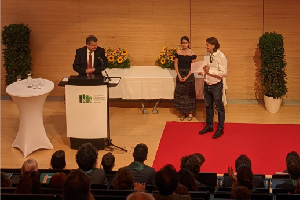
The ISTA Alumni Award 2023, given to excellent former ISTA researchers, was presented during the Graduation Ceremony of the ISTA Graduate School at the end of June. Awardee Alexander Kolesnikov is a great example of what the future can hold for excellent PhD students after graduating from ISTA: he received his doctorate in 2018, is currently working at Google Research in Zurich.
Already during his PhD, Kolesnikov focused on the design of computer systems that can automatically learn to parse and understand visual information, like images or videos. “The crux of my research lies in enhancing the efficiency with which computers learn to interpret visual data from examples,” Kolesnikov explains. What he has begun at ISTA’s Lampert group focusing on machine learning and computer vision, he is still pursuing at Google now—and that very successfully, as his former supervisor Christoph Lampert points out: “Not even five years after his PhD, Alexander has become a highly cited scholar in his field. He has made an astonishing number of influential contributions to computer vision, most notably the creation of machine learning algorithms, so called Vision Transformers. These have now become the foundation of most state-of-the-art computer vision models, both academic and well as commercial.”
This is one of the many reasons making Kolesnikov a worthy winner of the alumni award, which he received at the ceremony this Thursday. And the appreciation clearly is mutual. “I am deeply honored to receive the ISTA Alumni Award,” Kolesnikov said. “This recognition holds special significance for me, as ISTA has played a pivotal role in shaping me as a scientist.”

UNIVERSITY HOSPITAL BASEL, SWITZERLAND
Janina Kowalski was a Postdoc in the Jonas group. She now works as a neuroscientist, psychiatrist, general practitioner, and trauma-therapist in Basel, Switzerland. In April 2022 she visited the ISTA campus to take a walk down memory lane and answer some questions about her work and career.
Watch the corresponding video on YouTube
Well, I’m taking care of people, enabling them, helping them find themselves, to find a better way of living their lives, even if they have had serious troubles in the past.
Well I started off as an MD. Then I did a PhD in neuroscience and I was basically working on patch-clamp recordings in the brain. First, in Freiburg im Breisgau and then I moved with my postdoc lab to the ISTA.
I see myself in the future indeed continuing that work but going even more into experimental approaches and into research mostly focusing on trauma therapy.
Well I could dive deeper into basic science techniques and the thing I cherished the most here was the connection between different groups from different fields. Not only from neuroscience. That was very inspiring for me.
Well, the nights on the bridge during late focused research times. Chatting to other people from other labs. These were quite amazing.
Follow your ideals and your heart and your brain. Don’t pick only one. And talk about yourself, talk about troubles, look for other people, who might want to listen. And: Don’t let yourself get distracted by what the global opinion is. Do your thing. Stay true to yourself.

For the first time, ISTA presented an outstanding achievement award to an alumnus. The ISTA Alumni Award went to former ISTA postdoc Anton Mellit, an outstanding mathematician who, according to his former group leader Prof. Tamas Hausel, “works in four to five different areas of mathematics simultaneously and achieves extraordinary success.” The Ukrainian is currently an associate professor at the University of Vienna and has gained international attention for his work on knot theory, algebraic combinatorics, algebraic geometry, and number theory.